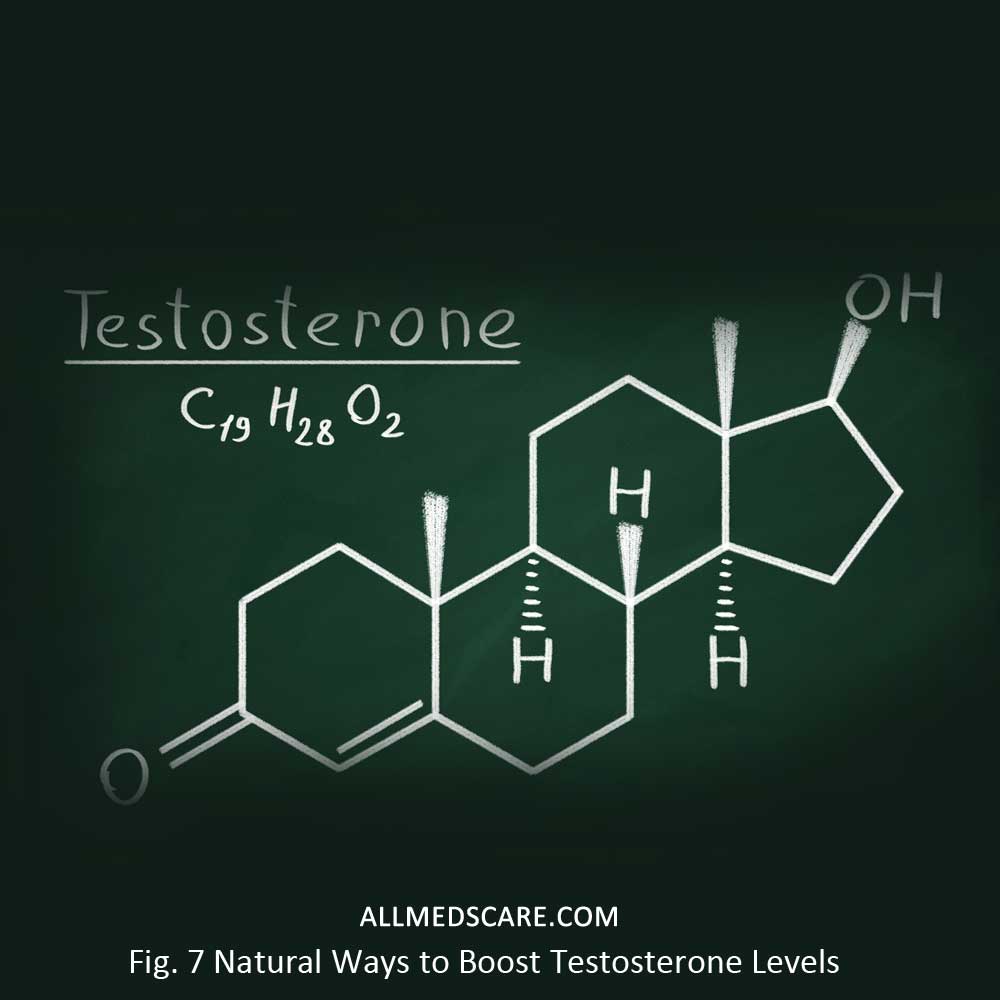
Top 7 Natural Ways to Boost Testosterone Levels
Optimize your health by implementing lifestyle changes, including exercising, sleeping well, managing stress, and eating a nutritious diet to naturally boost testosterone levels.
Testosterone, also known as the “male hormone”, is an essential component of the human body. Testosterone is responsible for the formation and maintenance of masculine characteristics such as facial hair, deep voice and muscle growth. However, the importance of testosterone goes beyond this stereotype. It affects different bodily functions, including energy levels, regulating one’s mood, and cognitive abilities. As people get older, their testosterone levels decrease, which can lead to various symptoms such as fatigue, loss of muscle mass, and decreased sex drive. Understanding the importance of testosterone and maintaining a good balance of the hormone is essential for overall well-being and quality of life.
The Top 7 Natural Ways to Boost Testosterone Levels
Boosting testosterone levels naturally has many benefits for both men and women. Below are the top 7 natural ways to boost testosterone levels.
- Eating a Testosterone-Boosting Diet: The Best Foods and Nutrients for Optimal Testosterone Levels: A testosterone-boosting diet can significantly affect T-level optimization. Incorporating zinc-rich foods like oysters and pumpkin seeds can help produce testosterone. Adequate protein consumption and healthy fats from foods like avocado and olive oil are also essential for good T levels. Additionally, magnesium-rich foods like spinach and almonds and vitamin D-rich foods can support healthy hormone balance. To promote optimal testosterone levels naturally, a diet rich in these key nutrients is essential.
- Regular Exercise and Strength Training: Unlocking Your Body’s Natural Testosterone Production : Regular exercise and strength training can unlock your body’s natural testosterone production. Engaging in weightlifting and high-intensity interval training can increase testosterone levels. By promoting muscle growth and boosting testosterone levels, these workouts can help you balance your hormones and improve your overall health.
- The Importance of Quality Sleep: How Lack of Sleep Affects Your Hormone Balance: Maintaining a healthy hormone balance, including testosterone levels, depends on getting quality sleep. Lack of sleep can disrupt the hormonal balance of the body, which reduces the production of testosterone. To promote healthy hormone function and overall health, aim for 7-9 hours of uninterrupted sleep each night.
- Managing Stress Levels: The Surprising Link Between Stress and Testosterone: To maintain optimal testosterone levels, stress management is essential. Chronic stress can cause an increase in the hormone cortisol, which inhibits testosterone production. By engaging in stress-reduction practices, including meditation, exercise and relaxation, you can help restore hormonal balance and support healthy testosterone levels.
- Vitamin D & Sun Exposure: The Sunshine Vitamin’s Impact on T-levels: Vitamin D, also known as the “sunshine vitamin,” is crucial for testosterone production. When exposed to sunlight, the skin naturally produces vitamin D, which aids in maintaining optimal levels of testosterone in the body. If you don’t get much sun exposure, consider taking a vitamin D supplement to ensure optimal hormone balance and overall health.
- Natural Herbs and Supplements That Can Support Healthy Testosterone Levels: Many natural herbs and supplements can support normal testosterone levels. Commonly used herbs that boost testosterone production include Ashwagandha, Fenugreek, and Tribulus Terrestris. Supplements containing zinc, vitamin D and D-aspartic acid also have positive benefits on T-levels. However, it is important to speak with a medical professional before adding any new supplements to your routine.
- Lifestyle Changes that Can Make a Difference in Your Hormonal Balance: Making certain lifestyle changes can benefit hormonal balance. Optimum hormone levels can be achieved by prioritizing regular exercise, maintaining a healthy weight and getting enough sleep. Other important factors in maintaining good hormonal balance include managing stress, eating a balanced diet and avoiding excessive alcohol consumption.
Busting Common Myths About Testosterone Boosting Techniques
There are many widespread misconceptions about testosterone-boosting methods that need to be cleared up.
- Taking testosterone-boosting foods or supplements can significantly increase testosterone levels. Although good nutrition is important, it alone does not significantly increase testosterone levels.
- More exercise, especially focusing on specific muscle groups, will increase testosterone levels. Although exercise is important for general health, it has little effect on testosterone production.
- It is false to assume that low testosterone levels are only related to aging. Although testosterone levels generally decline with age, various additional factors, such as ongoing health problems or medications, can affect hormone levels at any age.
- Low testosterone levels always causes symptoms like low sex drive or mood swings, but not always. Hormonal balance and symptoms can vary greatly from person to person.
It’s important to approach testosterone boosting ways with realistic expectations and seek the help of a medical professional for accurate diagnosis and recommendations. Understanding and debunking these myths is essential to making informed decisions and adopting effective strategies to maintain hormonal balance.
Taking a Holistic Approach to Optimizing Your Hormonal Health
Consideration of the many factors that affect hormone balance is part of a holistic approach to improving hormonal health. This approach emphasizes a combination of natural techniques to promote overall health and hormonal balance. This includes living a healthy lifestyle that includes frequent exercise, a balanced diet, and stress management. Prioritizing quality sleep and ensuring you get enough sunlight to produce vitamin D are also important. In addition to lifestyle changes, holistic hormone health includes identifying and treating any underlying medical problems or medications that may affect hormone levels. It is important to speak with medical professionals who specialize in hormone balance, including endocrinologists or naturopaths, to determine a personalized plan for hormone optimization. Taking a holistic approach means understanding how closely hormonal balance is linked to our overall health, including our physical, mental and emotional health. Taking the whole person into account and using a variety of natural techniques, this approach aims to support optimal hormonal balance and promote overall health and vitality.






